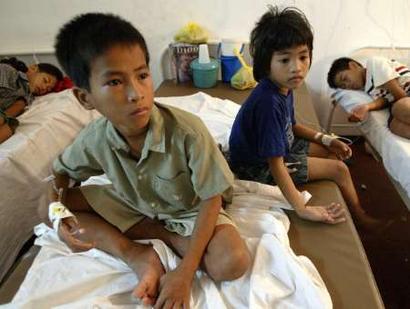Yes, folks, the Philippine government wants to be known as such, according to a GMANews.tv report.
But what the government did not say is that this future health and wellness capital will cater to foreigners, first and foremost.

Let’s hear it first from the news report:
The Department of Tourism (DOT) and Department of Health (DOH) want to make the Philippines as “Asia’s Health and Wellness Capital.”
According to a report on QTV’s Balitanghali Saturday, the DOT has launched the “Health and Wellness in the Heart of Asia” program to boost medical tourism in the country.
It said that part of the objectives of the program is to improve the Philippines’ health services, cosmetic hospitals and hospital staff.
It is truly saddening to note the government’s sense of priorities amid the alarming situation characterized by a shortage in the number of doctors and nurses serving Filipinos, the continued migration of many of these health professionals, and the inadequate budget for health services. In addition, we have foreign drug companies keeping medicine prices high.
As it stands, the Arroyo government’s total annual budget for health services is P27.8-billion for 88.57 million Filipinos, or a measly P313 per person for the entire year. That’s less than one peso a day! Compared with 133 countries, the Philippines ranks 90th in terms of per capita health budget.
Nationwide, many persons (especially children) continue to die of curable or preventable diseases such as pneumonia, diarrhea, tubercolosis, malaria, measles, bronchitis, dengue, chicken pox, influenza, and the like.
Medical insurance is a political tool, as we all have seen in the 2004 elections, when President Arroyo used Philhealth cards in aid of her campaign.
Amid all these, we see government encouraging medical tourism and it appears to be the priority as far as agencies are concerned. But what do expect from a government that worships before the altar of imperialist globalization. Through medical tourism, the government offers our health facilities and professionals to foreigners while our people’s needs are ignored or not met.
Health professionals have come out with an outline of a critique of the medical tourism program and it is a recommended read to be able to appreciate the urgency of resolving the health services crisis. See also this piece from the Council for Health and Development.
If you wish to read more about health issues vis-a-vis people’s needs worldwide, please visit the International People’s Health University resource library.